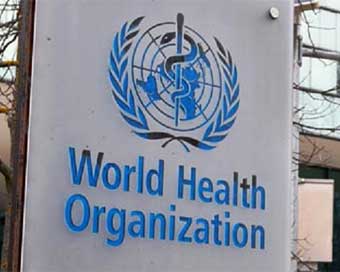 PM Modi visit USA
PM Modi visit USA Only the mirror in my washroom and phone gallery see the crazy me : Sara Khan
Only the mirror in my washroom and phone gallery see the crazy me : Sara Khan Karnataka rain fury: Photos of flooded streets, uprooted trees
Karnataka rain fury: Photos of flooded streets, uprooted trees Cannes 2022: Deepika Padukone stuns at the French Riviera in Sabyasachi outfit
Cannes 2022: Deepika Padukone stuns at the French Riviera in Sabyasachi outfit Ranbir Kapoor And Alia Bhatt's Wedding Pics - Sealed With A Kiss
Ranbir Kapoor And Alia Bhatt's Wedding Pics - Sealed With A Kiss Oscars 2022: Every Academy Award Winner
Oscars 2022: Every Academy Award Winner Shane Warne (1969-2022): Australian cricket legend's life in pictures
Shane Warne (1969-2022): Australian cricket legend's life in pictures Photos: What Russia's invasion of Ukraine looks like on the ground
Photos: What Russia's invasion of Ukraine looks like on the ground Lata Mangeshkar (1929-2022): A pictorial tribute to the 'Nightingale of India'
Lata Mangeshkar (1929-2022): A pictorial tribute to the 'Nightingale of India' PM Modi unveils 216-feet tall Statue of Equality in Hyderabad (PHOTOS)
PM Modi unveils 216-feet tall Statue of Equality in Hyderabad (PHOTOS)The Badminton Association of India (BAI) has announced a 14-member-strong India squad for
- Men’s Sr Hockey Nationals to be played in division-based format from April 4
- Mensik denies Djokovic 100th title in Miami final
- KIPG: Son of a vegetable vendor, Bihar’s Jhandu Kumar eyes Worlds, 2028 Paralympics
- Hardik Singh credits hard work and team unity for receiving HI Midfielder of the Year award
- Djokovic, Alcaraz land in same half of Miami draw
Every hour 26 lives lost to drowning worldwide: WHO Last Updated : 25 Jul 2024 01:21:56 PM IST 
WHO About 236,000 lives every year, which can be 350 per day or 26 every hour, are lost due to drowning worldwide, said Saima Wazed, the World Health Organisation (WHO) Regional Director for South East Asia on Thursday.
July 25 is observed as World Drowning Prevention Day to bring awareness about the leading cause of injury-related death and disability worldwide.
The theme this year is ‘Anyone can drown, no one should’.
“In 2019, drowning claimed 70,034 lives in the South-East Asia Region, making it the second-highest contributor to drowning deaths worldwide,” said the Regional Director.
“Drowning is a sudden and silent killer, often catching victims and those around them unawares until it is too late. A few seconds may not be enough time to respond. The power is in prevention,” she added.
Wazed noted that the majority of the incidents took place near homes due to lack of supervision, exposure to hazardous water bodies, insufficient awareness, and poverty.
There are preventive measures that exist and are crucial to address this issue, Wazed said, adding that the global health body has outlined evidence-based, cost-effective, and scalable strategies to prevent drowning.
It also comes with guidance that is tailored to different contexts.
“We all have a role to play in preventing drowning. Whether by raising awareness, promoting knowledge of effective solutions, collaborating on prevention plans and policies with local or national governments, volunteering with relevant organisations, or ensuring personal and family safety around water, each of us can make a difference,” Wazed said.IANS New Delhi For Latest Updates Please-
Join us on
Follow us on








172.31.16.186







